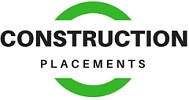Last Updated on June 14, 2024 by Admin
The Civil Engineering Career Suitability Test is designed to help 10+2 students interested in pursuing a career in civil engineering. This test aims to check their understanding of fundamental physics, Chemistry, and mathematics concepts essential for pursuing civil engineering.
By taking this test, students can understand their strengths and weaknesses in these subjects, which can help them identify areas that require improvement. It can also help them determine if they have the necessary knowledge and skills to pursue a career in civil engineering.
This test can provide valuable feedback to students, enabling them to make informed decisions about their future academic and career paths. Once you finish the test, You will get an instant test result.
Click the “Next” Button below to start your test. Best Luck!
FAQs
Civil engineering is a good career choice for those who enjoy working on large-scale infrastructure projects, have a strong foundation in math and science, and are interested in solving complex problems.
The Civil Engineering Career Suitability Test is designed to help 10+2 students interested in pursuing a career in civil engineering assess their knowledge in Physics, Chemistry, and Mathematics.
No, the Civil Engineering Career Suitability Test is designed for 10+2 students interested in pursuing a career in civil engineering. It is not suitable for experienced civil engineers.
Yes, you can retake the Civil Engineering Career Suitability Test as often as possible to improve your score.
The Civil Engineering Career Suitability Test is a 25-question MCQ test that can be completed in 20 to 25 minutes.
Civil engineering is a good career choice for those interested in designing, building, and maintaining infrastructure such as roads, bridges, and buildings. It is a challenging and rewarding career that offers professional growth and advancement opportunities.
Skill tests for civil engineers evaluate their abilities and knowledge in specific areas of civil engineerings, such as structural design, project management, and surveying. These tests may include practical exercises, written exams, or a combination of both. They help assess an engineer’s technical skills, problem-solving ability, and critical thinking skills.



